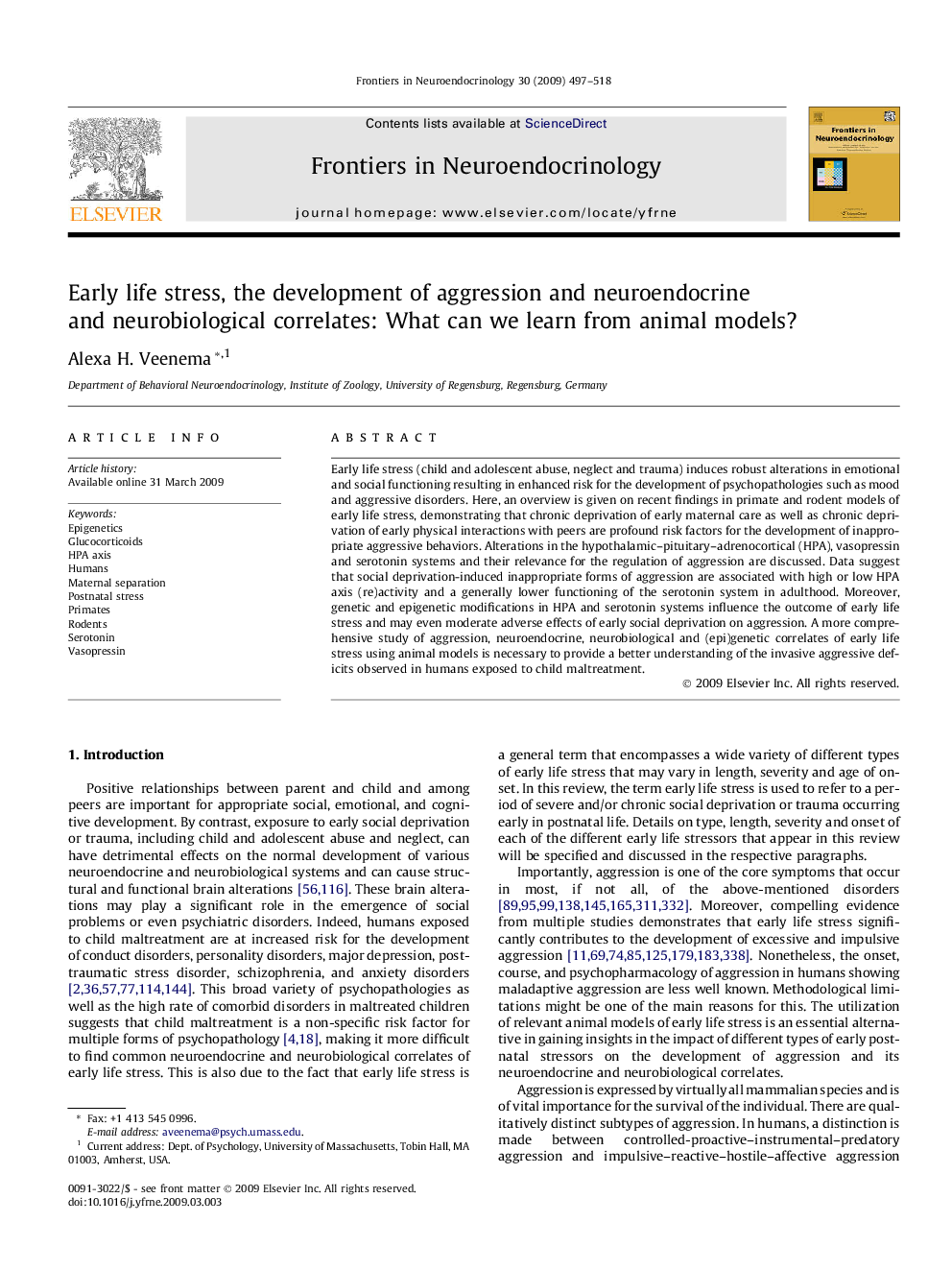| Article ID | Journal | Published Year | Pages | File Type |
|---|---|---|---|---|
| 2799491 | Frontiers in Neuroendocrinology | 2009 | 22 Pages |
Abstract
Early life stress (child and adolescent abuse, neglect and trauma) induces robust alterations in emotional and social functioning resulting in enhanced risk for the development of psychopathologies such as mood and aggressive disorders. Here, an overview is given on recent findings in primate and rodent models of early life stress, demonstrating that chronic deprivation of early maternal care as well as chronic deprivation of early physical interactions with peers are profound risk factors for the development of inappropriate aggressive behaviors. Alterations in the hypothalamic-pituitary-adrenocortical (HPA), vasopressin and serotonin systems and their relevance for the regulation of aggression are discussed. Data suggest that social deprivation-induced inappropriate forms of aggression are associated with high or low HPA axis (re)activity and a generally lower functioning of the serotonin system in adulthood. Moreover, genetic and epigenetic modifications in HPA and serotonin systems influence the outcome of early life stress and may even moderate adverse effects of early social deprivation on aggression. A more comprehensive study of aggression, neuroendocrine, neurobiological and (epi)genetic correlates of early life stress using animal models is necessary to provide a better understanding of the invasive aggressive deficits observed in humans exposed to child maltreatment.
Keywords
Related Topics
Life Sciences
Biochemistry, Genetics and Molecular Biology
Endocrinology
Authors
Alexa H. Veenema,
